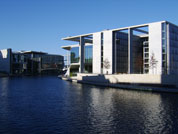Seite weiterleiten
OER Towns

OER (Open Education Resources) Towns
Project nummber: 2019-1-ES01-KA204-EC87432D
Migrants asylum seeker and refugees face different sets of obstacles to integration: language barriers in accessing public services; lack of information; discrimination and prejudice from nativeborn communities complicating their access to jobs and social inclusion. Marginalisation due to migrants’ concentration in certain neighbourhoods reduces their access to quality education and job opportunities, wellbeing, cultural and political participation.
The project, OER Towns, aims to develop & test an innovative non formal training approach addressed to low-skilled adults with migrant background (especially newly arrived migrants, asylum seekers and refugees) to support their social and economic integration into hosting society and labour market. At a time where the integration of refugees and migrants into host societies is most pressing, local communities face multiple challenges due to growing cultural, linguistic and ethnic diversity and to socio-economic inequalities.
Through the use of a mobile application we plan to provide access to a growing database of learning challenges that can be freely selected by location of by subject according to the specific needs of the users. At the same time we provide to the educators and education providers, local communities, the civic society organizations and the public authorities tools and methodologies to create high quality and tailored to the needs of migrants and refugees learning challenges.
By using, mobile applications, OER Towns creates informal learning challenges located in the physical environment of an established community that address the needs of particular disadvantaged groups. In all partner countries it helps to the integration of migrants, including refugees, by providing ICT-enabled solution which improves autonomy and inclusion and therefore the lives of migrants. Through the project activities and outcome we provide a new approach to reducing disparities in access and engagement with digital technologies by developing a sustainable and transferable model of non-formal learning.
The project will operate in six different communities and it has broad linguistic and geographical coverage. The main project outcomes will available in English, Spanish, French, Italian, German and Greek and partners are coming from countries with a high migrant and refugee population.
Activities and results
• Creation of a game for mobile devices that will provides fun, informal leaning opportunities for migrants, asylum seeker and refugees located and grounded in the communities they live in.
• Development of a roll-out pack for other towns wanting to use or adapt the game for their own community.
• Creation of a data bank of learning challenges that are related to the physical, social and cultural environment the target group lives in and accessed through QR codes.
• Work with community groups, societies and businesses to create the challenges or tasks and work with migrants, asylum seeker and refugees to create content to augment the physical environment and benefit of residents and visitors.
Partners
University of the Basque Country (Spain, Coordinator);
Iberika (Germany)
Active Citizens Partnership (Greece)
PISTES SOLIDAIRES (France)
Verein Multikulturell (Austria)
CESIE (Italy)



